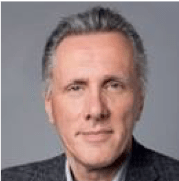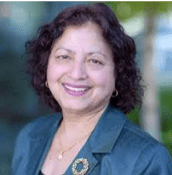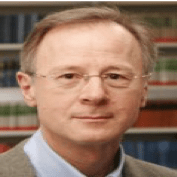In addition to talks by Prof Abbas, Day 3 of Immuno-Jaipur included talks on autoimmunity and chronic inflammation. Prof. Bernhard Fleisher gave a talk on autoimmunity in the central nervous system, where he discussed various autoimmune diseases such as Myasthenia Gravis, Encephalitis, Multiple sclerosis. Myasthenia gravis is an autoimmune disease which results from antibodies (Abs) that block or destroy nicotinic acetylcholine receptors at the junction between the nerve and muscle. In autoimmune encephalitis, auto-Abs (aAbs) are produced against N-methyl-D-aspartate (NMDA) receptors that control electrical impulses in the brain. He explained that T cells are licensed in the lung to enter CNS.
 Prof. Olivier Boyer delivered his lecture on autoimmunity and chronic inflammation: “The example of myositis.” There are two major classes of myositis-dermatomyositis (DM) and overlap myositis (OM). DM associates with skin manifestations to muscle weakness and OM has extra-muscular involvement and/or association to aAbs. Around 60% of patients with autoimmune myositis have myositis-specific aAbs. He showed that Anti-Mi2 aAbs are positive in 10–20% of DM and is associated with a low risk of cancer and a better cancer prognosis. In contrast, anti-transcription intermediary factor 1 aAbs are positive in more than 10% of DM and the presence of this aAb is highly associated with cancer.
Prof. Olivier Boyer delivered his lecture on autoimmunity and chronic inflammation: “The example of myositis.” There are two major classes of myositis-dermatomyositis (DM) and overlap myositis (OM). DM associates with skin manifestations to muscle weakness and OM has extra-muscular involvement and/or association to aAbs. Around 60% of patients with autoimmune myositis have myositis-specific aAbs. He showed that Anti-Mi2 aAbs are positive in 10–20% of DM and is associated with a low risk of cancer and a better cancer prognosis. In contrast, anti-transcription intermediary factor 1 aAbs are positive in more than 10% of DM and the presence of this aAb is highly associated with cancer.
 Dr. Neena Kapoor briefed the audience about hematopoietic stem cells transplantation that takes placeat Children’s Hospital Las Angels, USA. She showed the various sources of stem cells such as bone marrow, cord blood, peripheral blood stem/progeniter cells. She also highlighted the transplantations in primary immunodeficiency such as SCID, also known as bubble boy disease. Further she highlighted the Haploidentical Transplantation – a half-matched bone marrow transplant that has been successful for patients of some cancers and blood disorders. She also elaborated on the advantange of CAR T cells in transplantation. These modified immune cells while capable of imparting immunity against infection and provide immune surveillance against cancer, can be completely destroyed in the event they attempt to cause graft-vs-host disease by turning on the safety switch with the help of small molecular agent.
Dr. Neena Kapoor briefed the audience about hematopoietic stem cells transplantation that takes placeat Children’s Hospital Las Angels, USA. She showed the various sources of stem cells such as bone marrow, cord blood, peripheral blood stem/progeniter cells. She also highlighted the transplantations in primary immunodeficiency such as SCID, also known as bubble boy disease. Further she highlighted the Haploidentical Transplantation – a half-matched bone marrow transplant that has been successful for patients of some cancers and blood disorders. She also elaborated on the advantange of CAR T cells in transplantation. These modified immune cells while capable of imparting immunity against infection and provide immune surveillance against cancer, can be completely destroyed in the event they attempt to cause graft-vs-host disease by turning on the safety switch with the help of small molecular agent.
In addition to talks by faculty, Day 3 of Immuno-Jaipur also included a technical presentation that focused on the latest technology that can be used to measure cellular expression of 40 molecules using combined approach of flow cytometry and mass spectrometry – CyTOF. CyTOF is a relatively a new technology and many are not familiar with. CyTOF is a cytometry time of flight machine that combines mass-spectometry with cytometry (mass cytometry). Unlike flow cytometry where Abs specific for the antigen of interest on the target cell population are conjugated fluorescent molecules, in CyTOF Abs are conjugated to the heavy metal ion.
Day 3 ended with a dinner at Chokhi Dhani. It gave beautiful glimpses of Rajasthani tradition and cultures. The authentic Rajasthani food was delicious.
Article by Rushikesh Patil, Dimpu Gogoi and Mr. Naythan D’Cunha












